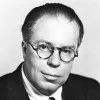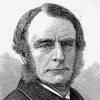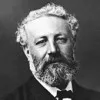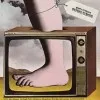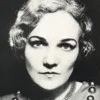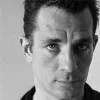“There’s a pirate asleep in the pampas just beneath us,” Peter told him. “If you like, we’ll go down and kill him.”
“I don’t see him,” John said after a long pause.
“I do.”
“Suppose,” John said, a little huskily, “he were to wake up.”’
Peter spoke indignantly. “You don’t think I would kill him while he was sleeping! I would wake him first, and then kill him. That’s the way I always do.”J. M. Barrie (1860-1937) Scottish novelist and dramatist [James Matthew Barrie]
Peter and Wendy, ch. 4 “The Flight” (1911)
(Source)
Not included in the 1928 published play.
Quotations about:
adventure
Note not all quotations have been tagged, so Search may find additional quotes on this topic.
A life without adventure is likely to be unsatisfying, but a life in which adventure is allowed to take whatever form it will is sure to be short.
Bertrand Russell (1872-1970) English mathematician and philosopher
Authority and the Individual, Lecture 1 (1949)
(Source)
Collection, with some edits, of the inaugural Reith Lectures, BBC, "Authority and the Individual," No. 1 "Social Cohesion and Human Nature" (25:36) (1948-12-26).
How dull it is to pause, to make an end,
To rust unburnish’d, not to shine in use!
As tho’ to breathe were life. Life piled on life
Were all too little, and of one to me
Little remains: but every hour is saved
From that eternal silence, something more,
A bringer of new things; and vile it were
For some three suns to store and hoard myself,
And this gray spirit yearning in desire
To follow knowledge, like a sinking star,
Beyond the utmost bound of human thought.
It is by going down into the abyss
that we recover the treasures of life.Where you stumble,
there lies your treasure.The very cave you are afraid to enter
turns out to be the source of
what you are looking for.
The damned thing in the cave
that was so dreaded
has become the center.Joseph Campbell (1904-1987) American writer, professor of literature
In Diane K. Osbon, ed., Reflections on the Art of Living: A Joseph Campbell Companion, “In the Field” (1991)
(Source)
Quoted extensively, and mis-cited to a variety of Campbell's published works. I have not been able to confirm a primary source for it.
Never turn down the chance of an adventure, unless such chances are coming thick and fast, and maybe not even then.
Mignon McLaughlin (1913-1983) American journalist and author
The Second Neurotic’s Notebook, ch. 4 (1966)
(Source)
Make your choice, adventurous Stranger,
Strike the bell and bide the danger,
Or wonder, till it drives you mad,
What would have followed if you had.C. S. Lewis (1898-1963) English writer, literary scholar, lay theologian [Clive Staples Lewis]
The Magician’s Nephew, ch. 4 “The Bell and the Hammer” (1955)
(Source)
Inscription below the bell in Charn.
It’s simply not an adventure worth telling if there aren’t any dragons.
J.R.R. Tolkien (1892-1973) English writer, fabulist, philologist, academic [John Ronald Reuel Tolkien]
(Misattributed)
Variant: "It simply isn’t an adventure worth telling if there aren’t any dragons."
Actually found in Sara Ban Breathnach, Simple Abundance, "February 16: At the End of Our Exploring" (2005). Breathnach quotes an actual Tolkien warning about dragons earlier on the page, apparently leading people to misattribute this phrase of hers to Tolkien.
More discussion: Not a Tolkien quote: It simply isn't an adventure worth telling if there aren't any dragons - thetolkienist.com.
Your body is not a temple, it’s an amusement park. Enjoy the ride.
Anthony Bourdain (1956-2018) American chef, author, travel documentarian
Kitchen Confidential, “Second Course” (2000)
(Source)
While often framed around Bourdain's self-destructive lifestyle, in this context he's discussing being adventuresome when selecting places to dine, including taking some risks in order to gain new food experiences.
It must be made clear to men that the narrow path that leadeth unto life is as crowded with adventure as the broad path that leadeth to destruction.
Learning and living. But they are really the same thing, aren’t they? There is no experience from which you can’t learn something. … And the purpose of life, after all, is to live it, to taste experience to the utmost, to reach out eagerly and without fear for newer and richer experience.
We pay for security with boredom, for adventure with bother.
Peter De Vries (1910-1993) American editor, novelist, satirist
Comfort Me With Apples (1956)
(Source)
A common fallacy in much of the adverse criticism to which science is subjected today is that it claims certainty, infallibility and complete emotional objectivity. It would be more nearly true to say that it is based upon wonder, adventure and hope.
Cyril Norman Hinshelwood (1897-1967) British chemist and Nobel laureate
“Classics among the intellectual disciplines,” Presidential Address to the Classical Association, Hull, UK (1959-04-09)
Quoted in the Sunday Times (1959-05-17), and in E. J. Bowen's obituary of Hinshelwood, in Chemistry in Britain, Vol. 3 (1967), p. 534.
Life never gives us what we want at the moment that we consider appropriate. Adventures do occur, but not punctually.
E. M. Forster (1879-1970) English novelist, essayist, critic, librettist [Edward Morgan Forster]
A Passage to India, ch. 3 (1924)
(Source)
Back in the nineteen-hundreds it was a wonderful experience for a boy to discover H. G. Wells. There you were, in a world of pedants, clergymen and golfers, with your future employers exhorting you to “get on or get out”, your parents systematically warping your sexual life, and your dull-witted schoolmasters sniggering over their Latin tags; and here was this wonderful man who could tell you about the inhabitants of the planets and the bottom of the sea, and who knew that the future was not going to be what respectable people imagined.
George Orwell (1903-1950) English writer [pseud. of Eric Arthur Blair]
“Wells, Hitler, and the World State,” Horizon (Aug 1941)
(Source)
When you sell a man a book you don’t sell him just twelve ounces of paper and ink and glue — you sell him a whole new life.
Christopher Morley (1890-1957) American journalist, novelist, essayist, poet
Parnassus on Wheels, ch. 4 (1917)
(Source)
When all the world is young, lad,
And all the trees are green;
And every goose a swan, lad,
And every lass a queen;
Then hey for boot and horse, lad,
And round the world away;
Young blood must have its course, lad,
And every dog his day.Charles Kingsley (1819-1875) English clergyman, historian, essayist, novelist (pseud. "Parson Lot")
“Water Babies,” Song 2, st. 1 (1863)
(Source)
Everything is possible for an eccentric, especially when he is English.
MINSTREL: [singing]
He was not in the least bit scared to be mashed into a pulp,
Or to have his eyes gouged out and his elbows broken,
To have his kneecaps split and his body burned away,
And his limbs all hacked and mangled, brave Sir Robin!
His head smashed in, and his heart cut out,
And his liver removed, and his bowels unplugged,
And his nostrils raped, and his bottom burnt off,
And his penis —SIR ROBIN: That’s enough music for now, lads.
Phileas Fogg had won his wager, and had made his journey around the world in eighty days. To do this he had employed every means of conveyance — steamers, railways, carriages, yachts, trading-vessels, sledges, elephants. The eccentric gentleman had throughout displayed all his marvellous qualities of coolness and exactitude. But what then? What had he really gained by all this trouble? What had he brought back from this long and weary journey?
Nothing, say you? Perhaps so; nothing but a charming woman, who, strange as it may appear, made him the happiest of men!
Truly, would you not for less than that make the tour around the world?
[Phileas Fogg avait gagné son pari. Il avait accompli en quatre-vingts jours ce voyage autour du monde! Il avait employé pour ce faire tous les moyens de transport, paquebots, railways, voitures, yachts, bâtiments de commerce, traîneaux, éléphant. L’excentrique gentleman avait déployé dans cette affaire ses merveilleuses qualités de sang-froid et d’exactitude. Mais après ? Qu’avait-il gagné à ce déplacement? Qu’avait-il rapporté de ce voyage?
Rien, dira-t-on? Rien, soit, si ce n’est une charmante femme, qui — quelque invraisemblable que cela puisse paraître — le rendit le plus heureux des hommes!
En vérité, ne ferait-on pas, pour moins que cela, le Tour du Monde?]
Jules Verne (1828-1905) French novelist, poet, playwright
Around the World in Eighty Days, ch. 37 (1873)
(Source)
I need some encouragement. I need to ask myself, “What would an Apollo astronaut do?” He’d drink three whiskey sours, drive his Corvette to the launchpad, then fly to the moon in a command module smaller than my Rover. Man those guys were cool.
The Road goes ever on and on
Down from the door where it began.
Now far ahead the Road has gone,
And I must follow, if I can,
Pursuing it with eager feet,
Until it joins some larger way,
Where many paths and errands meet.
And whither then? I cannot say.J.R.R. Tolkien (1892-1973) English writer, fabulist, philologist, academic [John Ronald Reuel Tolkien]
The Lord of the Rings, Vol. 1: The Fellowship of the Ring, Book 1, ch. 1 “A Long-expected Party” (1954)
(Source)
Sung by Bilbo as he leaves Bag End. Two chapters later, Frodo sings the same song when walking with Sam, Merry, and Pippin, but substitutes "weary" for "eager."
Frank O’Connor, the Irish writer, tells in one of his books how, as a boy, he and his friends would make their way across the countryside, and when they came to an orchard wall that seemed too high and too doubtful to try and too difficult to permit their voyage to continue, they took off their hats and tossed them over the wall — and then they had no choice but to follow them. This Nation has tossed its cap over the wall of space, and we have no choice but to follow it.
Sail forth! steer for the deep waters only!
Reckless, O soul, exploring, I with thee, and thou with me;
For we are bound where mariner has not yet dared to go,
And we will risk the ship, ourselves and all.
The brave things in the old tales and songs, Mr. Frodo: adventures, as I used to call them. I used to think that they were things the wonderful folk of the stories went out and looked for, because they wanted them, because they were exciting and life was a bit dull, a kind of a sport, as you might say. But that’s not the way of it with the tales that really mattered, or the ones that stay in the mind. Folk seem to have been just landed in them, usually — their paths were laid that way, as you put it. But I expect they had lots of chances, like us, of turning back, only they didn’t. And if they had, we shouldn’t know, because they’d have been forgotten.
J.R.R. Tolkien (1892-1973) English writer, fabulist, philologist, academic [John Ronald Reuel Tolkien]
The Lord of the Rings, Vol. 2: The Two Towers, Book 4, ch. 8 “The Stairs of Cirith Ungol” [Sam] (1954)
(Source)
Come, my friends.
‘Tis not too late to seek a newer world.
Push off, and sitting well in order smite
The sounding furrows; for my purpose holds
To sail beyond the sunset, and the baths
Of all the western stars, until I die.
PETER: To die will be an awfully big adventure.
J. M. Barrie (1860-1937) Scottish novelist and dramatist [James Matthew Barrie]
Peter Pan, Act 3 (1904, pub. 1928)
(Source)
This was added to the play in 1905, at the end of Act 3:(The waters are lapping over the rock now, and PETER knows that it will soon be submerged. Pale rays of light mingle with the moving clouds, and from the coral grottoes is to be heard a sound, at once the most musical and the most melancholy in the Never Land, the mermaids calling to the moon to rise. PETER is afraid at last, and a tremor runs through him, like a shudder passing over the lagoon; but on the lagoon one shudder follows another till there are hundreds of them, and he feels just the one.)
PETER (with a drum beating in his breast as if he were a real boy at last): To die will be an awfully big adventure.In Barrie's novelization, Peter and Wendy, ch. 8 "The Mermaids' Lagoon" (1911), this is rendered:
The rock was very small now; soon it would be submerged. Pale rays of light tiptoed across the waters; and by and by there was to be heard a sound at once the most musical and the most melancholy in the world: the mermaids calling to the moon.
Peter was not quite like other boys; but he was afraid at last. A tremor ran through him, like a shudder passing over the sea; but on the sea one shudder follows another till there are hundreds of them, and Peter felt just the one. Next moment he was standing erect on the rock again, with that smile on his face and a drum beating within him. It was saying, “To die will be an awfully big adventure.”
Sometimes given as "To die would be an awfully great adventure," "To die will be a great adventure," or "To die would be a great adventure."
A ship in harbor is safe, but that is not what ships are built for.
John Augustus Shedd (1859-1928) American writer, educator
Salt from My Attic (1928)Variants:
More information on this quotation here. Sometimes (mis)attributed to William Greenough Thayer Shedd.- "Ships in harbor are safe, but that is not what ships are built for."
- "A ship in port is safe. But that’s not what ships were built for." (used by Grace Hopper)
- "A ship is always safe at shore, but that is not what it is built for." (frequently misattributed to Albert Einstein)

















